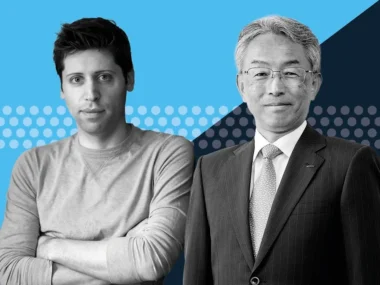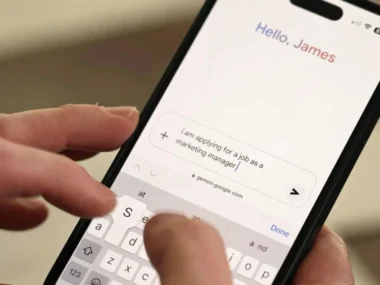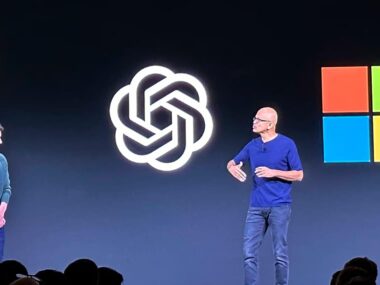Former Sinn Féin leader Gerry Adams is one of several writers whose work may have been used by Meta to train its latest artificial intelligence model.
Adams claims his books were used without his approval and has handed the issue over to his solicitor.
According to an investigation by The Atlantic, Meta may have used millions of pirated books and academic papers obtained through Library Genesis (LibGen) to develop its generative AI system, Llama.

Two books by Michael Taylor are listed in the database.
Meta responded by saying it respects intellectual property rights and believes its use of data for AI training aligns with current laws. The Atlantic also released a searchable database of the pirated content, helping many authors determine whether their books were included.
When BBC News NI searched the database, several Northern Irish authors appeared, including Jan Carson, Lynne Graham, Deric Henderson, and Booker Prize winner Anna Burns.
Writers globally have been rallying to push governments to step in.
Meta, which operates Facebook, Instagram, and WhatsApp, is already facing legal action from several authors over the use of their material.
The most profitable theft in history.
Michael Taylor, a historian from Ballymena, expressed his frustration over Meta potentially using his work. Two of his books, The Interest and Impossible Monsters, are listed on the LibGen database.
He stated, “Writers spend years on their books, and despite what people think, very few make enough to live solely from writing.”
Taylor further criticized Meta, saying, “Meta may be worth over a trillion dollars and politically untouchable, but by infringing on the copyrights of thousands of books, its actions represent the most profitable theft in history.”

Professor Monica McWilliams mentioned that many of her academic papers are listed on the database.
Professor Monica McWilliams, an academic and former politician, has written extensively on the Northern Ireland peace process and domestic violence. Over 20 of her academic papers and books, including those on intimate partner violence and domestic violence during conflict, appear on the LibGen database.
She expressed shock upon discovering this, stating, “The first principle in academia is to direct your reader to your source material, which isn’t happening here.”
McWilliams questioned the current meaning of copyright, emphasizing that she donates royalties from her works to domestic violence charities like Women’s Aid. She pointed out that if royalties are not paid, these charities ultimately suffer.
Last week, authors gathered in London to protest Meta’s actions, with prominent authors such as Kate Mosse, Richard Osman, and Val McDermid signing an open letter urging Culture Secretary Lisa Nandy to bring Meta’s management before parliament.
Richard Osman, author of the Thursday Murder Club series, posted on X, saying: “Copyright law is not complicated at all. If you want to use an author’s work, you need to ask for permission. If you use it without permission, you’re breaking the law. It’s that simple.”
He added, “It will be incredibly difficult for us and other affected industries to challenge Meta, but we’ll give it a good try!”
What is Llama?
Llama is a large language model (LLM), similar to OpenAI’s ChatGPT and Google’s Gemini. These systems are trained on vast amounts of data to identify patterns and use that data to generate text by predicting the next word in a sequence.
Despite being labeled as “intelligent,” critics argue that LLMs do not truly “think,” lack understanding of what they generate, and can confidently present inaccuracies as facts.
While tech companies argue that more data is needed to improve the reliability of these systems, authors, artists, and other creatives believe these companies should pay for the privilege of using their work.











